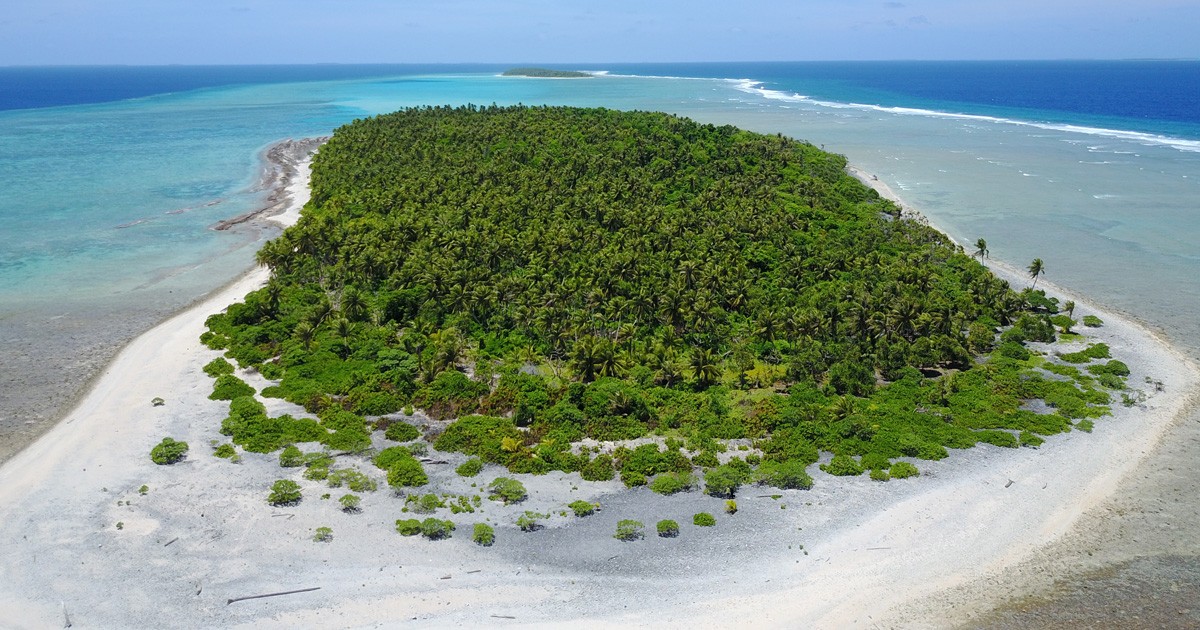December 4, 2024
The Ebiil Society: Champions of Palau
Ann Singeo, founder of our partner organization the Ebiil Society, shares her vision for a thriving Palau and a flourishing world of indigenous science!
We use cookies to help you navigate efficiently and perform certain functions. You will find detailed information about all cookies under each consent category below.
The cookies that are categorized as "Necessary" are stored on your browser as they are essential for enabling the basic functionalities of the site. ...
Necessary cookies are required to enable the basic features of this site, such as providing secure log-in or adjusting your consent preferences. These cookies do not store any personally identifiable data.
Functional cookies help perform certain functionalities like sharing the content of the website on social media platforms, collecting feedback, and other third-party features.
Analytical cookies are used to understand how visitors interact with the website. These cookies help provide information on metrics such as the number of visitors, bounce rate, traffic source, etc.
Performance cookies are used to understand and analyze the key performance indexes of the website which helps in delivering a better user experience for the visitors.
Advertisement cookies are used to provide visitors with customized advertisements based on the pages you visited previously and to analyze the effectiveness of the ad campaigns.
Our new online shop is live!

World Nature Conservation Day is celebrated every year on July 28. The date is a reminder of the value of conservation for people and wildlife alike. Nowhere is this connection more apparent than on islands, which are home to a wide array of animals and plants found nowhere else on Earth, and 10% of the global human population. Many island communities understand the essential role of nature and have seen first-hand the destruction of species, ecosystems, human livelihoods, and community wellbeing, and are taking steps to preserve biodiversity for today and into the future.
Islands are not always the pristine oasis we imagine; they often experience severe environmental destruction caused by introduced, invasive species—the primary cause of island extinctions, and a driver of our global extinction crisis. For decades, Island Conservation has focused on this intersection, removing invasive species from islands with remarkable results, bringing endangered wildlife back from the brink of extinction, reviving vegetation and habitat, and reclaiming vital resources for island communities.
One of the most damaging and widespread invasive species on islands are invasive rodents, capable of devouring seabird eggs, chicks, and even adults, and the seeds and sprouts of native plants. For example, on Loosiep Island, Ulithi Atoll in the Federated States of Micronesia, invasive rats have devastated the local ecosystem, decimating birds and sea turtles, vegetation, and the community’s essential agriculture. Island Conservation and the community are eager to see the island rid of invasive rats, spurring recovery of wildlife, revitalized food security through local agriculture, and ultimately people and wildlife thriving in harmony.
This is achievable on islands like Loosiep that are small with few or no inhabitants, but on larger islands with greater biodiversity and more people, our current tools for removing invasive species are nearly obsolete. Only 15% of islands where restoration is necessary can be restored with existing practices; to reach the remaining 85% of islands we need innovative new tools.
Cue gene drives:
Gene drives are a genetic phenomenon that occurs in nature and causes a gene or trait to have a greater than 50% chance of inheritance. Island Conservation and partners have formed the Genetic Biocontrol of Invasive Rodents (GBIRd) partnership, to explore the technical and social feasibility of creating a gene drive to eliminate invasive rodents on islands. For example, a gene drive that causes rats to produce all male offspring spreads through an invasive population until there is no natural recruitment.
On this World Nature Conservation Day, I would like to invite you to reflect on the scale, speed and costs of the efforts needed to address current conservation challenges. Gene drive could be a game-changer for conservation, making nature restoration and sustainable development gains possible on islands where these are currently out of reach today. Combined with existing tools, gene drive could transform the future of island restoration, drastically increasing the scope, scale, and pace of our work, and realizing benefits for island wildlife and communities around the world.
Check out other journal entries we think you might be interested in.
Notifications